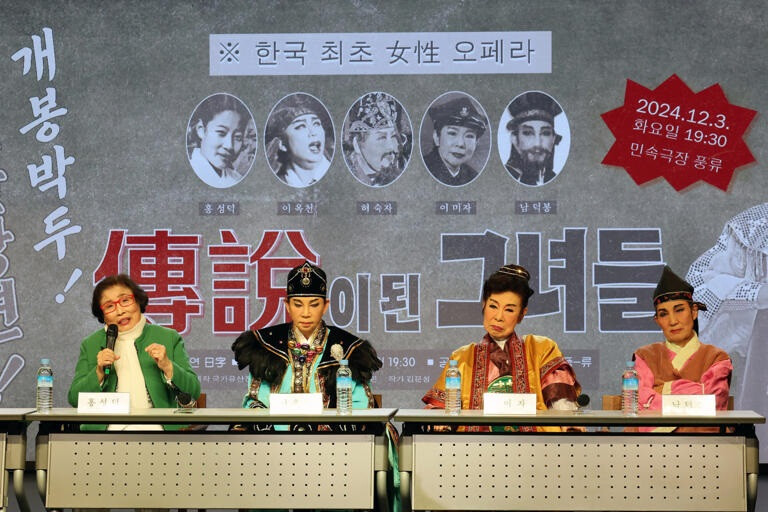
Seoul, South Korea – A group of veteran Korean women's opera performers have come together to celebrate the legacy of this unique art form and to call for greater recognition and support. The women, who once starred in popular productions across the country, are preparing for a special performance scheduled for early next month.
Women's opera, a distinctive form of Korean traditional theater, gained immense popularity in the mid-20th century. Unlike traditional Korean opera, where men typically played all roles, women's opera featured all-female casts, including those portraying male characters. This groundbreaking approach challenged traditional gender norms and inspired generations of performers and artists.
Pioneered by the renowned singer Park Rok-ju in 1948, women's opera experienced a golden age in the 1960s and 1970s, with over 20 troupes performing across the country. However, the art form has faced challenges in recent decades, with fewer opportunities for performance and training.
At a recent press conference, veteran performers Hong Sung-deok, Lee Ok-cheon, Lee Mi-ja, and Nam Duk-bong shared their experiences and expressed their hope for the future of women's opera. They recalled the passion and dedication of their younger selves, as well as the challenges they faced in preserving this unique art form.
"I entered a traditional arts high school to learn opera, but they didn't teach it," said Lee Ok-cheon. "So I created my own version of 'Bangja Jeon' and it became a huge hit."
Despite the challenges, the women remain committed to preserving women's opera. Hong Sung-deok, the president of the Korean Women's Opera Association, has dedicated her life to promoting and preserving this art form. "I would teach anyone who wants to learn women's opera, even if I have to pay for their lessons," she said.
The upcoming performance, titled "Legendary Women: Korea's First Female Opera," will feature a talk concert with the veteran performers, followed by a performance of "Princess Seonhwa," one of the most popular women's opera productions.
While women's opera has faced challenges in recent years, there is a growing movement to revitalize this unique art form. However, unlike in other countries such as China and Japan, where similar forms of women's theater have received significant government support and cultural recognition, Korean women's opera has yet to be officially designated as an intangible cultural heritage.
The women's opera veterans hope that their upcoming performance will help to raise awareness of this important art form and inspire future generations of performers.
[Copyright (c) Global Economic Times. All Rights Reserved.]



























